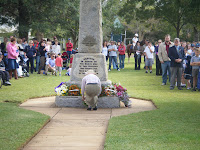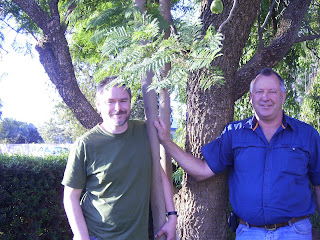


Julie:
As with most of Australia, ANZAC in Hillston is a growing affair. Each year the numbers are increasing, especially amongst the school children and young people. In a small country town in can be very much more personal as most of the families are known to the whole community. This year the address was given by a senior school student whose grandfather was the president of the RSL for here for many years.
The band of 3 does an excellent job going to Rankin Springs first thing (117 km SE) and then to Goolgowi (60km south) after the Hillston parade. It was also fantastic to have the local pony club take part.
Lunch in the RSL for over 100 people is a great time to catch up with lots of friends and neighbours.











